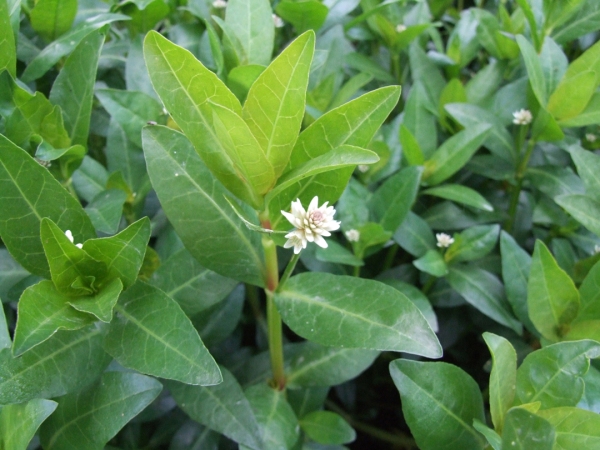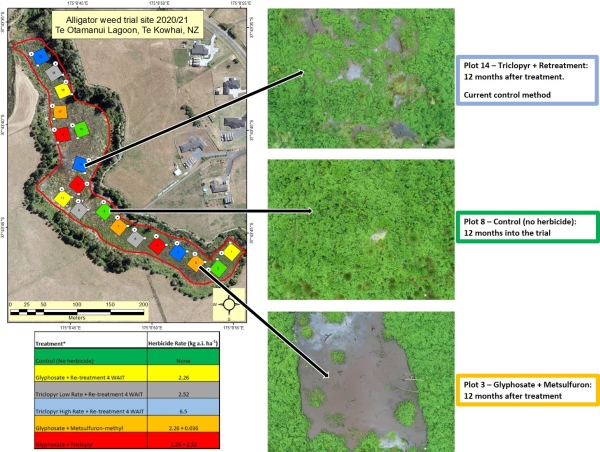Alligator weed (Alternanthera philoxeroides) is an aggressive invader of aquatic, semi-aquatic and terrestrial environments. Floating mats of alligator weed can exclude native plant species, degrade water quality, and restrict water flow.
Alligator weed was introduced to Northland, New Zealand in the 1880s-1900s, and is now well established in the region and further south to the Waikato. More recent infestations have been recorded in the Manawatu and Bay of Plenty regions.
Alligator weed is actively managed in the Waikato and further south in New Zealand with goals of either eradication or progressive containment to minimise its spread and impacts. However, alligator weed is difficult to control using existing methods. New infestations of alligator weed can be physically removed if they are detected early, when the infested area is small. Herbicides are the most effective control tools in cases where alligator weed extends across large areas, or when site access is hazardous for physical weed removal.
The herbicides available to use over water in New Zealand are limited and provide sub-optimal levels of control of alligator weed with single applications. The research NIWA is doing in collaboration with Waikato Regional Council and Mississippi State University is focused on identifying the best herbicide tools available and developing use profiles (rates and frequencies of application) that minimise herbicide use and associated costs, whilst providing effective weed control, which will in turn minimise the further spread of alligator weed in New Zealand.
Potential options include combining herbicide treatments and repeating herbicide treatments at short intervals. The herbicides evaluated included glyphosate, metsulfuron, and triclopyr.
Our research team has conducted field trials in New Zealand (NIWA, WRC) and the US (MSU) to evaluate the effectiveness of herbicide combinations and repeated treatments for alligator weed control. The New Zealand field trial was carried out in 2020 at Te Otamanui Lagoon, Te Kowhai, in the Waikato region. Five different herbicide control options were tested on 20 x 20 m replicated plots.
The NIWA team is also running laboratory trials to evaluate the impact of herbicide treatments on the production of viable alligator weed stem fragments following treatment.
If you suspect you have seen alligator weed, please leave it alone and contact your regional council.



